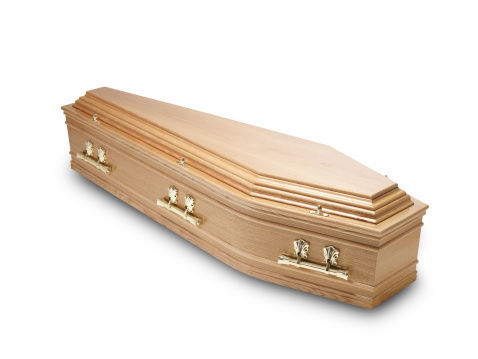Free Consultation
Available 24/7 for Immediate Help
(614) 263-5297

Burial? Cremation? An organic pod?
It’s a subject no one wants to think about, but disposing of a body after death is an important topic, nonetheless.
What should we do with our body after we die? And what’s the least expensive, legal way to dispose of a body?
When I meet with my clients to discuss their Last Will and Testament and other Ohio estate planning and probate needs, I encourage people to think about what they want to have done with their body once they’ve passed on. Some people have very specific instructions. Others haven’t given it much thought.
For people who opt for the traditional route, the casket is often the single largest expense. Prices range from $500 for a basic box, to more than $20,000 for an elaborate design.
Ohio does not have any laws that require a casket for burial, but you should check with the cemetery to see if they have rules that require a certain type of container. Under federal law, funeral homes must accept caskets from another source, like an online retailer. You may also choose to build a casket yourself.
While most bodies are buried in established cemeteries, a burial on private land may be possible. If this appeals to you, check with your county or town clerk to determine whether there are any zoning laws you need to follow.
If you choose to be cremated, a casket is not necessary. Federal law requires that funeral homes inform you that you can use an alternate container. Wood, pressed wood, fiberboard, or cardboard are popular choices. You may also opt for an urn that can be stored or displayed in a cemetery or home.
There are few laws regarding where ashes may be stored or scattered. They can be stored in a crypt, a box, a grave, or a container at home. Ashes are harmless, so there is no public health risk. Nonetheless, use common sense and avoid scattering ashes where they would be obvious to others.
Many cemeteries offer gardens for the purpose of scattering ashes. You are also allowed to scatter ashes on your own private land. If you wish to scatter ashes on public land, you should check local city and county regulations and zoning rules.
To scatter ashes on federal land, like a national park you should obtain permission before doing so. While practically speaking you are unlikely to experience any resistance, be sure to keep the ceremony quiet and keep ashes away from trails, road, facilities, and waterways.
If you wish to scatter ashes at sea, understand that the EPA does not permit scattering of ashes at beaches or wading pools, and that cremated ashes must be scattered at least three nautical miles from land. If you wish to scatter ashes in an inland lake or river, you may need to obtain a permit from the state agency that manages the water way. In Ohio, most of the waterways are managed by the Ohio Department of Natural Resources.
The least expensive way to dispose of a body after death is by donating it to science. This is something you must discuss with a medical school before death. Many medical schools will arrange to transport the body to the medical school, where it will be stored and used to train future medical professionals. In many cases, once the students have completed dissecting and studying the body, the school will return the ashes to the family.
As you are planning what you want done with your body after death, I recommend signing a notarized a authorization with disposition instructions. This document will specify who will take possession of your body after death, and who will make arrangements for what to do with it once you’re gone. This can avoid the problem of having your children fighting over whether you wanted to be buried or cremated.
If you have questions about Ohio estate planning and probate, or planning for what to do with your body after death, contact Wolfe Legal Services today. I work with people throughout greater Columbus, including Dublin, Bexley, Upper Arlington, Marysville, Hilliard, Delaware, and Newark, and throughout Franklin County, Delaware County, Union County, and Licking County. Call (614) 263-5297 any time or complete our online form.
© 2026 Wolfe Legal Services
View Our Terms & Conditions | Privacy Policy
Website Maintained and Hosted by Adamedia & Adam The Computer Guy